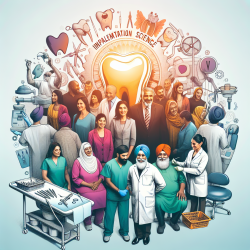The path to professional advancement in academic medicine is fraught with challenges, particularly for women who face the pervasive issue of sexual harassment. A recent multi-institutional longitudinal study sheds light on the effects of sexual harassment on women's career trajectories in academic medicine. Understanding these effects is crucial for practitioners aiming to foster a more equitable and supportive work environment.
The Study: Key Findings and Implications
The study analyzed data from 1995 to 2012-2013, involving women from 24 U.S. medical schools. It revealed that 54% of women reported experiencing workplace sexual harassment, with 32% facing severe harassment. Contrary to expectations, women who reported severe harassment were more likely to attain full professorship by 2012-2013.
This counterintuitive finding suggests that women seeking advancement may encounter more harassment due to their increased exposure to authority figures who abuse their power. Alternatively, those who recognize and label their experiences may develop coping mechanisms that aid their professional growth.
Implementing Research Outcomes: Strategies for Practitioners
Practitioners can leverage these findings to improve their skills and create a more inclusive academic environment:
- Promote Awareness: Educate faculty and staff about the prevalence and impact of sexual harassment in academic medicine. Use data from studies like this to highlight the issue's seriousness.
- Create Support Systems: Establish robust support networks for those affected by harassment. Encourage open dialogue and provide resources for coping and resilience building.
- Foster a Safe Environment: Implement policies that prioritize safety and respect in the workplace. Ensure that reporting mechanisms are accessible and effective, protecting individuals from retaliation.
- Cultivate Leadership Skills: Encourage women to pursue leadership roles despite challenges. Provide mentorship programs that empower them to navigate male-dominated environments confidently.
The Need for Continued Research
This study underscores the importance of ongoing research into sexual harassment's long-term effects on women's careers in academic medicine. Future studies should explore how changes post-#MeToo movement influence these dynamics and whether newer generations face similar challenges.










